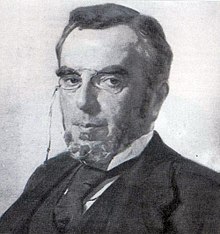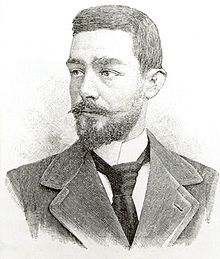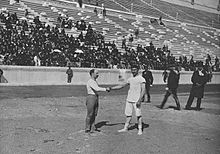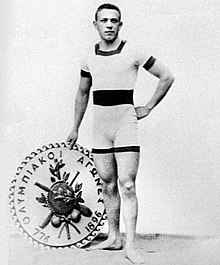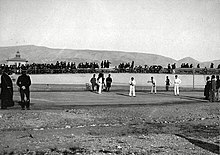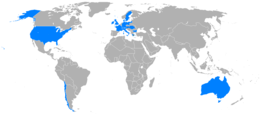Athens Olympic Games 1896
The Olympic Games of Athens 1896, officially known as the Games of the First Olympiad, were held in Athens, Greece, between April 6 and 15, 1896. 241 male athletes participated —there was no female participation— from 14 countries, who competed in 43 competitions of 9 sports. They were the first Olympic Games of the Contemporary Age.
Despite many obstacles and setbacks, the 1896 Olympic Games were recognized as a great success. They had the largest international participation in a sporting event to that date. The Panathenaic Stadium, which was the first major stadium in the modern world, was overwhelmed with the largest crowd ever gathered to watch a sporting event. The highlight for the Greeks was the victory of their compatriot Spiridon Louis in the marathon. The most successful competitor was the German wrestler and gymnast Carl Schuhmann, who won four gold medals.
Since then, every four years, athletes from all countries meet to compete against each other. Only the great wars of the XX century have prevented the holding of the Olympic Games, but at the end of these, the tradition. Athens hosted the Olympic Games again in 2004.
Background
During the 18th century, various small-scale sports festivals throughout Europe were called the Ancient Olympic Games. Baron Pierre de Coubertin had the idea of reviving the ancient Olympic Games, but in the form of a multi-sport and international event — the ancient Games were somewhat international, as various Greek polis and colonies were represented, but only allowed to participate the free men of Greek origin—, drawing inspiration from the games organized by the businessman Evangelos Zappas in Greece.
On June 18, 1894, Coubertin organized a conference at the Sorbonne University in Paris to present his plans to representatives of sports societies from eleven countries. After congressional approval of the idea, the choice of a date and venue began. Coubertin suggested that the Games be held in 1900, coinciding with the World's Fair in Paris, but since a six-year wait might dampen public interest, members of congress opted to hold the inaugural Games in 1896. The process The choice of venue is still a mystery due to the conflicting versions that exist. On June 23, 1894 Demetrius Vikelas officially proposed Athens and since Greece was the birthplace of the Olympic Games, the proposal was unanimously approved. Vikelas was also elected president of the newly created International Olympic Committee.
Organization
The news that the Olympic Games were to return to Greece was received favorably by the public, the media and the Greek royal family. According to Coubertin, "Crown Prince Constantine welcomed the opening of the Games in Athens".
In the closing years of the 19th century, the post of prime minister had alternated between Charilaos Trikoupis and Theodoros Deligiannis. Due to this political and economic instability, both Prime Minister Trikoupis and Stephanos Dragumis believed that Greece would not be able to hold the event. In late 1894, the organizing committee submitted a report stating that the cost would be three times higher than originally estimated. by Coubertin, concluding that the Games would not take place. The total cost of the Games was 3,740,000 drachmas, approximately US$448,000.
With the prospect of reviving the Olympics highly in doubt, Coubertin and Vikelas launched a campaign to keep the Olympic Movement alive. His efforts culminated on January 7, 1894, when Vikelas announced that Prince Constantine would assume the chairmanship of the Organizing Committee. His first responsibility was to raise the necessary funds to hold the Games, trusting that the patriotism of the Greek people would motivate him to finance the event. Vikelas and the other Greeks did most of the work, with Coubertin having very little involvement. Constantine's enthusiasm ignited a wave of contributions from the Greek public, and early efforts raised 330,000 drachmas. A special edition of postage stamps were issued, achieving 400,000 drachmas in sales, with ticket sales bringing in an additional 200,000 drachmas. And at Constantine's request, the Greek businessman George Averoff agreed to pay for the restoration of the Panathinaiko, donating nearly a million drachmas for this project. As a tribute to his generosity, a statue of Averoff was built, unveiled on 5 November. April 1896 outside the stadium, where it still continues.
Many of the athletes who participated in the Games were on holiday or on work in Athens when the Games took place – some British competitors worked for the British Embassy, for example. An Olympic Village was not designated for the athletes until the 1932 Olympic Games, so the athletes had to pay their own way.
The Games were a success. Fourteen countries and 241 athletes participated. After its completion, the Baron de Coubertin proposed that they be rotated around the world. This idea was not to the liking of the Greek organizers who had imagined a world event in Athens every four years, but it allowed the tradition started with these Games to continue until today.
The first regulation voted by the IOC in 1894 was to allow only amateur athletes to participate in the Games. It has been said that Coubertin used this restriction solely for tactical considerations, to get the Games reintroduced more quickly. The rules and regulations of sports were not uniform, so the Organizing Committee had to choose between the codes of the different national athletic associations. The jury, the referees and the gamemaster had the same names as in ancient times (Ephor, Helanodic and Alitarc). King George I of Greece acted as the final arbitrator and according to Coubertin, "his presence of him gave weight and authority to the decisions of the judges".
Development
Calendar
| ● | Opening ceremony | ● | Classifications | ● | Final events | ● | Closing ceremony |
| April | 6 | 7 | 8 | 9 | 10 | 11 | 12 | 13 | 14 | 15 |
|---|---|---|---|---|---|---|---|---|---|---|
| Ceremonies | ● | ● | ||||||||
| Athleticism | ● ● ● ● ● | ● ● ● ● ● | ● | ● ● ● ● ● | ||||||
| Cycling | ● | ● | ● | ● | ||||||
| Scream | ● | ● | ||||||||
| Gymnastics | ● ● ● ● ● ● | ● | ||||||||
| Halterophilia | ● | |||||||||
| Fight | ● | ● | ||||||||
| Swimming | ● ● ● | |||||||||
| Ten | ● | ● | ● | |||||||
| Tyre | ● | ● | ● | ● | ● | |||||
| April | 6 | 7 | 8 | 9 | 10 | 11 | 12 | 13 | 14 | 15 |
Opening Ceremony
On April 6 —March 25 according to the Julian calendar— the Games of the I Olympiad were inaugurated. It was Easter Monday for both Western Christianity and the Orthodox Church, and it was also the anniversary of the Greek war of independence. Approximately 80,000 spectators attended the Panathenaic Stadium, including King George I of Greece, his wife Olga and his sons. Most of the athletes lined up on the stadium grass, grouped by country. After the speech of the president of the organizing committee, Crown Prince Constantine, his father officially opened the Games with the words:
I proclaim the opening of the first international Olympic Games in Athens. Long live the Nation. Long live the Greek people.
Following this, nine bands and 150 choristers performed an Olympic Hymn, composed by Spyridon Samaras and written by poet Kostis Palamas. From then on, different music was played at the opening ceremonies of the Games until 1960, when the composition of Samaras and Palamas became the official Olympic Hymn (decision made at the 1958 IOC session). Other elements of the current opening ceremony began later: the Olympic flame was first lit in 1928, the athletes' oath was first taken in 1920, and the judges' oath in 1972.
Sports
At the first congress of the International Olympic Committee in 1894 at the Sorbonne, the Greek merchant Demetrius Vikelas was elected as the first president, who two years later in 1896 would be replaced by Baron Coubertin. A large number of sports were suggested for the Athens programme, and as a result the first official announcement about the events to take place included sports such as football and cricket. These plans did not come to fruition and not all the sports initially announced were on the final list, only eleven sports were included in the games program, with 43 events being disputed, and rowing and sailing were included but had to be canceled due to strong winds on the day of the competition.
| Sports at the Athens Olympic Games 1896 | |
| Athleticism Δ Ciclismo Δ Esgrima Δ Gimnasia Δ Halterofilia Δ Lucha Δ Natación Δ Tenis Δ Tiro | |
Athletics
Athletics events had a greater international reach than any other sport. James Connolly of the United States won the triple jump on April 6, 1896 becoming the first Olympic Champion in 1503 years. He also finished second in the high jump and third in the long jump. The journey to Athens was by boat freight and train.
The highlight was the marathon, held for the first time in an international competition. Spiridon Louis, an unknown water carrier, won the event to become Greece's only track and field champion and a national hero. Although Greece was favored to win in the discus and shot put, the top-ranked Greek athletes finished behind American Robert Garrett in both events. Garrett had trained with a very heavy discus and when he arrived at the competition he realized that the discus used in the Olympic tournament was lighter.
No world records were set as very few international competitors were chosen to participate. Also, the curves on the track were very sharp making it very difficult to reach high speeds in track racing. Despite this Thomas Burke of the United States won the 100 m meet in 12.0 seconds and the 400 m meet in 58.4 seconds. Burke was the only one to use the crouch start style (putting the knee on the ground), confusing the judges. Finally, he was allowed to start from this "uncomfortable" situation. position.
The Chilean Luis Subercaseaux competed in the 100-meter dash and was the only Ibero-American participant in all the Olympic Games, despite the fact that there was no official authorization from his country of origin, which has motivated Chile to be included in these games sometimes and not sometimes. Australian Teddy Flack won the 800 m and 1500 m. Ellery Clark of the United States won the high jump and long jump.
Cycling
Cycling competitions used the International Cycling Association rules. Track cycling events were held at the new Neo Phaliron Velodrome. There was only one road event, a race from Athens to the Marathon, round trip (about 87 kilometers).
In the track events, the best cyclist was Frenchman Paul Masson, who won the sprint and 10,000-meter events. In the 100-kilometre race, Masson paced compatriot Léon Flameng. Flameng won the event, after recovering from a crash and stopping to wait for his opponent, Georgios Kolettis of Greece, to fix a mechanical problem. Austrian fencer Adolf Schmal won the 12-hour race, which was completed by only two cyclists, while the road event was won by Aristidis Konstantinidis.
Fencing
Fencing events were held at the Zappeion, which, built with money Evangelos Zappas had invested to revive the old Games, had never seen any athletic events before. Unlike other sports, where only amateurs were allowed to participate, in fencing professional athletes were allowed to participate, although in a separate event.
Originally four events were planned, but the sword event was canceled for unknown reasons. In foil the winner was Frenchman Eugène-Henri Gravelotte, who defeated his compatriot Henri Callot in the final. Two Greek athletes won the other two events, saber and professional foil. Leonidas Pyrgos, who won professional foil, became the first Greek Olympic champion of the modern era.
Gymnastics
Gymnastics competitions were held at the Panathenaic Stadium. Germany, which had fielded an eleven-man team, won five of the eight events, including the two team events. In the team high bar event the Germans had no opponent. Three Germans also won individual titles: Hermann Weingärtner won the individual high bar, Alfred Flatow the individual parallel bars, and Carl Schuhmann, who also competed in wrestling, won the vault. Louis Zutter, a Swiss gymnast, won the vault event. with rings, while the Greeks Ioannis Mitropoulos and Nikolaos Andriakopoulos were the winners of the rings and rope climbing events, respectively.
Weightlifting
The sport of weightlifting was still young in 1896 and the rules were different than those used today. The competitions were outdoors, on the field of the main stadium and there were no weight limits. The first event was in a style now called a "two-stroke". Two competitors participated: Scotsman Launceston Elliot and Viggo Jensen from Denmark. Both lifted the same weight; but the jury, headed by King George, decided that Jensen did it in a better style. The British delegation, which was not used to this tie-breaking rule, protested the decision. The athletes then made new attempts but none managed to improve their mark, with which Jensen was declared champion.
Elliot got a second chance in the one-handed weightlifting event, which was held immediately after the two-handed. Jensen had been slightly injured in his last two-handed attempts, so he was no match for Elliot. During the event a curious incident occurred: a servant was tasked with removing the weights, which seemed very difficult for him. King George then went to help him, picking up the weight and throwing it a considerable distance with ease, much to the delight of the crowd.
Fight
The wrestling matches were held at Panathinaiko. In these there were no weight categories, which meant that there was only one winner among all the competitors. The rules used were similar to modern Greco-Roman wrestling, although there was no time limit and holding the opponent by the legs was not prohibited.
Except for the two Greek competitors, all the others had already participated in events in other sports. Weightlifting champion Launceston Elliot faced gymnastics champion Carl Schuhmann. The latter won and advanced to the final, where he faced Georgios Tsitas, who had defeated Stephanos Christopoulos. Darkness forced the final fight to be suspended after 40 minutes. It was continued the next day, when Schuhmann only needed 15 minutes to finish it.
Swimming
The swimming events were held in the open sea because the organizers refused to build a specialized stadium due to cost. About 20,000 spectators lined the Bay of Zea off the shores of Piraeus to watch the events. The water in the bay was cold, and the athletes suffered during their races. There were three open events, the 100-meter freestyle, 400-meter freestyle, and 1200-meter freestyle, plus another 100-meter freestyle event for Greek sailors only. All events were held on the same day, April 11.
For Alfréd Hajós of Hungary, this meant that he could only compete in two of the events, because they were to be held with very little time between them, which would not give him enough time to recover properly. However, he won both events he participated in, the 100 and 1200 meter freestyle, for the latter race the swimmers were transported by boat, left to return to shore on their own. At the end of the race Hajós stated that he was driven more by his desire to survive than to win the race. The 500 meter freestyle event was won by Austrian Paul Neumann who led his opponents by more than a minute and a half.
Tennis
Although tennis was already a popular sport in the late 19th century, none of the great tennis players the time he participated in the tournament in Athens. The competition was held on the courts of the Athens Tennis Club and on the field of the velodrome used for cycling events. John Pius Boland, who won the event, entered the competition thanks to a classmate of his at Oxford University; the Greek Konstantinos Manos. As a member of the Games' tennis subcommittee, Manos tried, with Boland's assistance, to recruit competitors for the games from among Oxford sporting circles. In the first phase Boland beat Friedrich Traun, a promising tennis player from Hamburg, who had been eliminated in the 100-meter race. Boland and Traun decided to team up for the doubles event in which they reached the final and beat their opponents after losing the first set.
Shooting
Held at a ranch in Kallithea, the shooting contest consisted of five events, two using rifle and three using pistol. The first event, military rifle 200 meters, was won by Pantelis Karasevdas, the only competitor to hit every shot. The second event, 25-meter military pistol, was dominated by two American brothers: John and Sumner Paine, who became the first brothers to finish first and second in the same event. In order not to embarrass their hosts, the brothers decided that only one of them would compete in the next event, 50-meter military pistol. Sumner Paine won that event and also became the first relative of an Olympic champion to also be a champion.
The Paine brothers did not complete the 25-meter rapid pistol event because the judges determined that their weapons were not of the required caliber. In his absence the winner was Ioannis Phrangoudis. The last event, military rifle 300 meters, began that same day, however could not be completed due to darkness, and ended the following morning, when Georgios Orphanidis was crowned champion.
Closing Ceremony
On the morning of Sunday, April 12, King George hosted a banquet for the officials and athletes (although some were no longer there). During his speech, he made it clear that, as far as he was concerned, the Games should always take place in Athens. The official closing ceremony was held the following Wednesday, after being postponed on Tuesday due to rain.
As with the opening ceremony, the royal family presided over the closing ceremony, which was opened by the Greek national anthem and a composition in ancient Greek by George S. Robertson, a British athlete. Later, the king gave the prizes to the winners: silver medal, olive branch and diploma to the first and copper medal, laurel branch and diploma to the second; third-place finishers received no medals. Spyridon Louis led the medalists in a lap of honor around the stadium as the Olympic Hymn was sung. Then the king officially announced that the first Olympiad was over and he left the stadium while the brass band played the Greek national anthem and the people applauded.
Participating countries
The concept of national teams was not a major part of the Olympic movement until the 1906 Intercalated Games, although many sources list the nationality of the competitors in 1896 and count their medals, with significant conflicts regarding which nations competed.
The International Olympic Committee recognizes the participation of fourteen countries, although without listing them. Some sources list twelve, excluding Bulgaria and Chile; while others list 13, including these two and excluding Italy. Egypt is included a few times due to the participation of Dionysios Kasdaglis and Belgium and Russia registered competitors who ended up withdrawing. The following fourteen countries are recognized by the IOC:
 Germany(GER)
Germany(GER) Australia(AUS)when it was still part of the United Kingdom.
Australia(AUS)when it was still part of the United Kingdom. Austria(UT)When it was still part of Austria-Hungary, Austrian athletes participated independently.
Austria(UT)When it was still part of Austria-Hungary, Austrian athletes participated independently. Bulgaria(BUL)
Bulgaria(BUL) Chile(CHI)
Chile(CHI) Denmark(DEN)
Denmark(DEN) United States(USA)
United States(USA) France(FRA)
France(FRA) Greece(GRE)including representatives of Cyprus and Smirna.
Greece(GRE)including representatives of Cyprus and Smirna. Hungary(HUN)when it was still part of Austria-Hungary, Hungarian athletes participated independently, including those from Croatia, Slovakia, Transylvania and Voivodina.
Hungary(HUN)when it was still part of Austria-Hungary, Hungarian athletes participated independently, including those from Croatia, Slovakia, Transylvania and Voivodina. Italy(ITA)
Italy(ITA) United Kingdom(GBR)
United Kingdom(GBR) Sweden(SWE)
Sweden(SWE) Switzerland(SUI).
Switzerland(SUI).
Medal table
Organizing country (Greece)
- See complete medallion in Medalero of the Athens Olympic Games 1896
During the events of the first Olympic Games, a silver medal, an olive branch, and a diploma were awarded to the first-place winners in each event. For second place, a copper medal, an olive branch, and a diploma were awarded. laurel and a diploma.
The medal shows the face of the god Zeus holding in his hand a globe on which victory rests with wings. At the bottom, the word “Olympia” is read in Greek. The reverse shows the acropolis and the text in Greek: International Olympic Games in Athens 1896.


